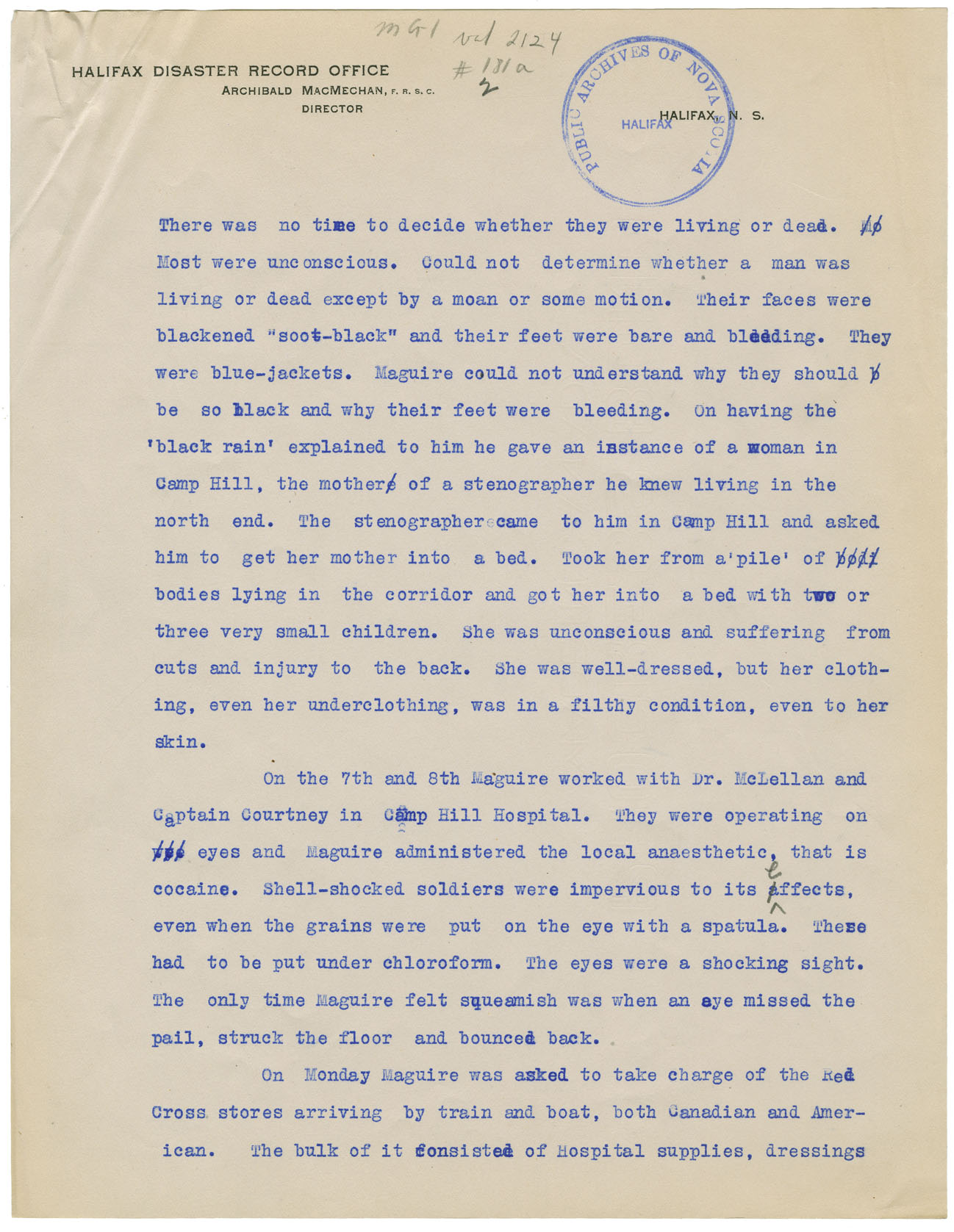Nova Scotia Archives
Archibald MacMechan
Halifax Disaster Record Office Materials
Personal narrative - L. Maguire, Regimental Quarter-master Sergent, C.A.D.S
3 pages : 30 x 39 cm.
note: transcription publicly contributed - please contact us with comments, errors or omisions
HALIFAX DISASTER RECORD OFFICE
ARCHIBAL MACMECHAN, F.R.S.C
DIRECTOR
HALIFAX, N. S.
There was no time to decide whether they were living or dead. Most were unconscious. Could not determine whether a man was living or dead except by a moan or some motion. Their faces were blackened "soot-black" and their feet were bare and bleeding. They were blue-jackets. Maguire could not understand why they should be so black and why their feet were bleeding. On having the 'black rain' explained to him he gave an instance of a woman in Camp Hill, the mother of a stenographer he knew living in the north end. The stenographer came to him in Camp Hill and asked him to get her mother into a bed. Took her from a 'pile' of bodies lying in the corridor and got her into a bed with two or three very small children. She was unconscious and suffering from cuts and injury to the back. She was well-dressed, but her clothing, even her underclothing, was in a filthy condition, even to her skin.
On the 7th and 8th Maguire worked with Dr. McLellan and Captain Courtney in Camp Hill Hospital. They were operating on eyes and Maguire administered the local anaesthetic, that is cocaine. Shell-shocked soldiers were impervious to its effects, even when the grains were put on the eye with a spatula. These had to be put under chloroform. The eyes were in a shocking sight. The only time Maguire felt squeamish was when an eye missed the pail, struck the floor and bounced back.
On Monday Maguire was asked to take charge of the Red Cross stores arriving by train and boat, both Canadian and American. The bulk of it consisted of Hospital supplies, dressings
[at top of page]
MG 1 vol 2124 number 181a
PUBLIC ARCHIVES OF NOVA SCOTIA
HALIFAX
Reference: Archibald MacMechan Nova Scotia Archives MG 1 volume 2124 number 181

